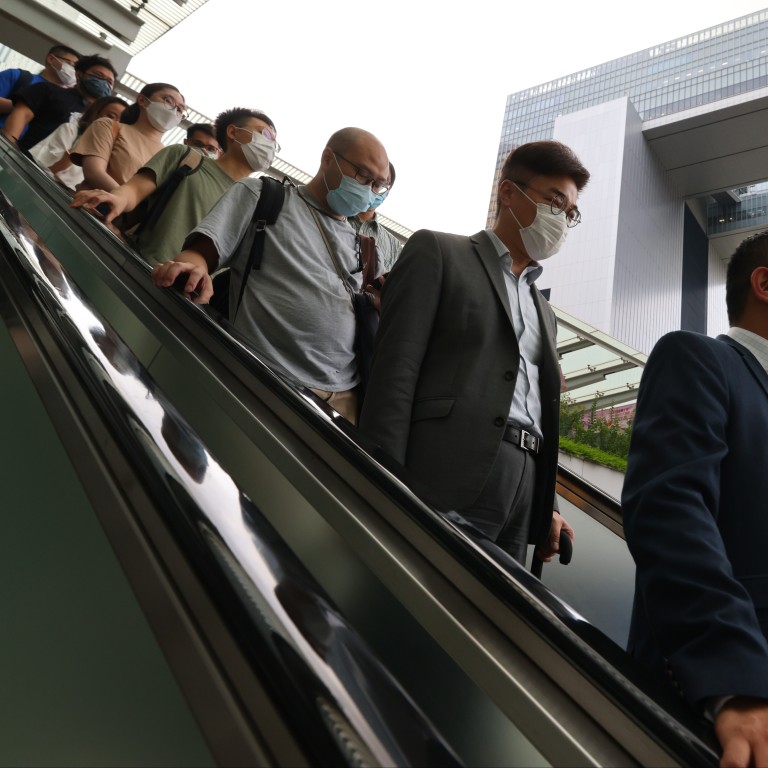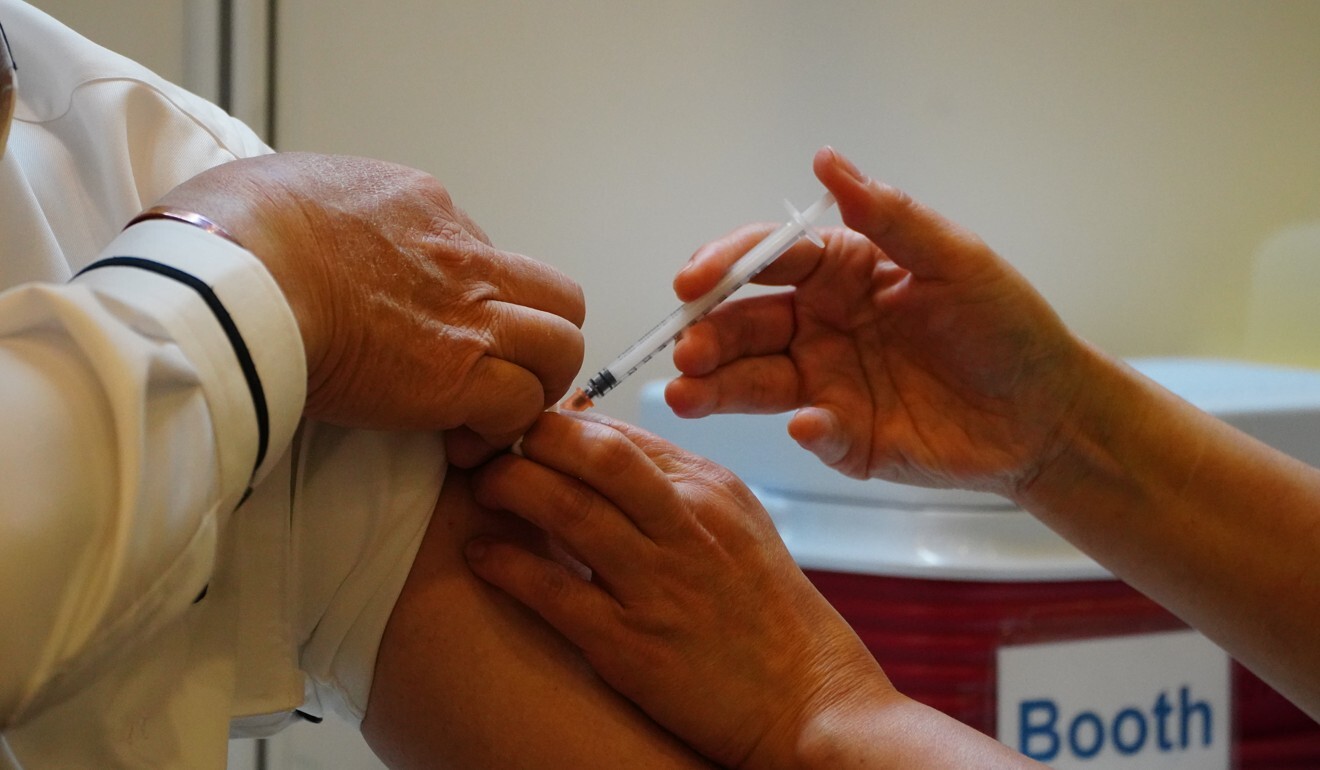
Coronavirus: Hong Kong’s vaccine scheme for frontline workers could expand to other civil servants, teachers, city leader says
- The current programme could also be changed so that city employees have to pay for their own regular testing should they decline to be jabbed
- Hong Kong confirms no new infections for second time this week, while authorities ban Lufthansa from flying Frankfurt route for two weeks over violations
Hong Kong on Thursday confirmed zero new Covid-19 cases, the second day this week with no infections recorded. The city’s official tally stood at 11,955, with 212 related deaths.
Some 70 per cent of frontline civil servants have been vaccinated, according to Lam, who did not specify whether that figure also included those who had only received one dose. Currently, about a quarter of the general population is fully vaccinated.
But a change in who had to pay for testing could be in the works, the chief executive said.
“The vaccination rate [among civil servants] is good, but expanding the scheme would help make it even better. We are also thinking that maybe they need to pay for the regular testing.”
Leung Chau-ting, chief executive of the Federation of Civil Service Unions, said that in principle, he agreed that frontline staff should be vaccinated. But he questioned how many more frontline staff the government could include in the scheme on top of the 64,000 already enlisted.
“I also think that it is unreasonable to ask employees to pay for their own testing,” he said. “This is the same as forcing them to be vaccinated, but the government needs to recognise that there are still civil servants who cannot get vaccinated over worries about side effects.”
Leung said the Civil Service Bureau should clarify Lam’s remarks.

Federation of Trade Unions lawmaker Kwok Wai-keung, chairman of Legco’s public service panel, said civil servants could be feeling the pressure to get inoculated, but suggested it was part of the job.
“I think that they understand that they have the responsibility to help protect the city against the coronavirus … so that our economy can recover,” he said.
Kwok said he believed that police, fire services, and food and environmental hygiene staff accounted for the biggest share of the 64,000 frontline employees already included under the scheme, as those were also the largest government departments.
The chief executive added that the Education Bureau was considering requiring that teachers also either be vaccinated or undergo frequent screenings.
“We all hope the new school year can be relatively normal when it starts in September. The experience in the past year showed that children, especially younger ones in lower-income families, suffer significantly if they are not taught face-to-face,” she said.
“The secretary for education is conducting a survey, and will receive some information by the end of July. We are seriously considering putting teachers under a similar approach.”
Lam noted that Hong Kong’s overall vaccination rate had been improving, with 40 per cent of eligible residents having taken at least one dose.
She added that the government had no plan to make vaccination mandatory for residents, something she insisted would backfire, arguing incentives were enough to encourage inoculation.
Separately, authorities said Germany’s Lufthansa would be banned from operating its Frankfurt-Hong Kong route from Friday through July 29, after a passenger on Monday was confirmed with Covid-19 on arrival and two others aboard the flight failed to comply with city coronavirus regulations.
The Department of Health did not elaborate on what rules the two passengers had violated.
Additional reporting by Elizabeth Cheung

